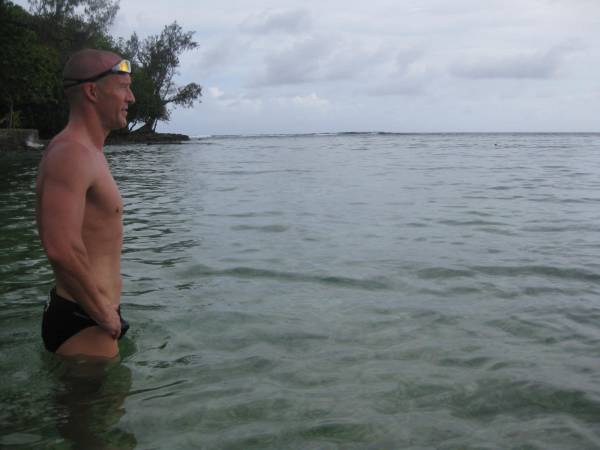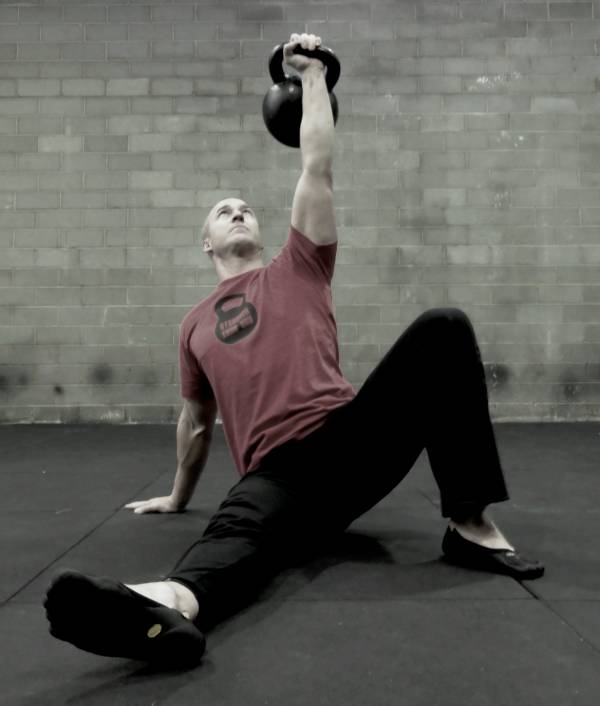I must visit Australia. I’ve wanted to for a while, but now I have two Andrew Read-related reasons. As many Pulse Beat Fit readers know, Andrew is a regular knowledge-dropper in the form of articles about all aspects of high-quality training and optimization of human performance. His articles feature titles like Stop Sucking and Train More, The Problem Is You, and Pigheaded Stubbornness, to name a few. And they always contain entire cobs of wisdom among the tough love parts.
The two additional Andrew-related reasons I now have to visit Australia are: 1) When I told him my personality tends toward the, um, sarcastic, and that my way of showing affection is to pretty much dump on the people I love, he told me, “Well, that just means you’re an honorary Australian.” 2) Perhaps I’d have the opportunity to get some instruction directly from Andrew, in which case the experience could be developed into a coaching article titled How to Show Patience Toward a Mouthy Yank with an Immature Squat.
I had the opportunity to chat with Andrew as he prepares for the Spartan Ultra Beast Race. This is an event described on its website as a “race against the clock as you climb ropes, throw spears, balance beams, jump fire, and traverse walls,” against the backdrop of rugged natural surroundings. I commented to Andrew that such an event sounded exactly like the kind of “go all day, outrun a zombie, live in an apocalyptic wasteland kind of fitness” he likes to pursue, as noted in his Pulse Beat Fit profile.
He agreed, and in describing his attraction to the event, he hypothesized that there is something primal about participating in group-based, multi-hour aerobic challenges because they both test our physical capabilities and uplift us internally. Andrew will certainly be uplifted if he sticks to his plan, which is to complete the “beast” (21km) and “ultra beast” (42km) versions of the race in Sydney on two consecutive days in November. He also likes the race aspect, as it enables him to measure improvements in performance.
Andrew’s ongoing preparation includes upcoming visits to Gym Jones in Salt Lake City, UT, known for their strength and endurance training. His goal in traveling there is twofold: to prepare for the race in November and to complete the Spartan Race’s coaching certification. The former is necessary for obvious reasons, and the latter will help him learn more about the Spartan events and how best to prepare himself and his clients for them.
 The philosophy of the race is consistent with Andrew’s own return to simpler modes of training, and the personality of his own gym. The race reflects an ethos of humility and simplicity, a minimizing of equipment, and a reconnection with nature. Andrew cited as an example of this mindset the frequent refrain of trainer and author Dan John that we should all get outside. While we can get a good workout in a gym, there is no substitute for the rejuvenating powers of challenging ourselves physically in the outdoors.
The philosophy of the race is consistent with Andrew’s own return to simpler modes of training, and the personality of his own gym. The race reflects an ethos of humility and simplicity, a minimizing of equipment, and a reconnection with nature. Andrew cited as an example of this mindset the frequent refrain of trainer and author Dan John that we should all get outside. While we can get a good workout in a gym, there is no substitute for the rejuvenating powers of challenging ourselves physically in the outdoors.
And if that doesn’t convince you, maybe the possibility of seeing a wallaby will, as Andrew did during a recent race. Of course this is more likely to happen in Australia, but if you don’t see a wallaby, maybe you’ll see a capybara, a pronghorn, or even a yeti. (Unlikely? Maybe. But certain not to happen if you don’t get out there.) This point about connecting with nature really hit home with me, given that when Andrew asked me to recall the last time I had worked out outside, I had to admit I could not remember. I’ll have to fix this.
Though Andrew has been in the fitness field long enough to see numerous trends come and go, he cited fundamental and enduring needs in the domain of human performance: flexibility and range of motion, strength, and aerobic conditioning. For instance, if we can’t move well (e.g., we cannot touch our toes), our movement is by definition restricted. If we are not strong, we miss out on the myriad benefits of having strength.
 Andrew also cited the importance of functional, compound movements rather than a focus on isolated muscle groups and body parts. We must be able to coordinate all of our moving parts to perform together, and isolated training does not accomplish this. Ultimately, most people need to learn to balance these fundamental needs of flexibility and range of motion, strength, and aerobic conditioning with appropriate proportions of work and recovery as well as a strong nutrition plan. This is true for everyone, but becomes more and more vital as we age. Andrew observed that the best thing for older adults would be to play the way six-year-olds do: running, jumping, learning to move while coordinating multiple muscle groups, and playing chasey (what we Americans call “tag.”).
Andrew also cited the importance of functional, compound movements rather than a focus on isolated muscle groups and body parts. We must be able to coordinate all of our moving parts to perform together, and isolated training does not accomplish this. Ultimately, most people need to learn to balance these fundamental needs of flexibility and range of motion, strength, and aerobic conditioning with appropriate proportions of work and recovery as well as a strong nutrition plan. This is true for everyone, but becomes more and more vital as we age. Andrew observed that the best thing for older adults would be to play the way six-year-olds do: running, jumping, learning to move while coordinating multiple muscle groups, and playing chasey (what we Americans call “tag.”).
Once Andrew has finished using these tactics in the race, he will go back to his normal training with little fanfare – nary even a cheat meal – probably until it’s time to prepare for the next challenge. If I play my cards right, like calling him some names so he knows I am his friend (and maybe even an Aussie who somehow got lost in the wilds of New Jersey decades ago), I’ll get to interview him then too. Meanwhile, I’m sure the whole Pulse Beat Fit family joins me in wishing Andrew the best of luck at the Spartan Ultra Beast Race. Is this Sparta? We will know soon enough.






